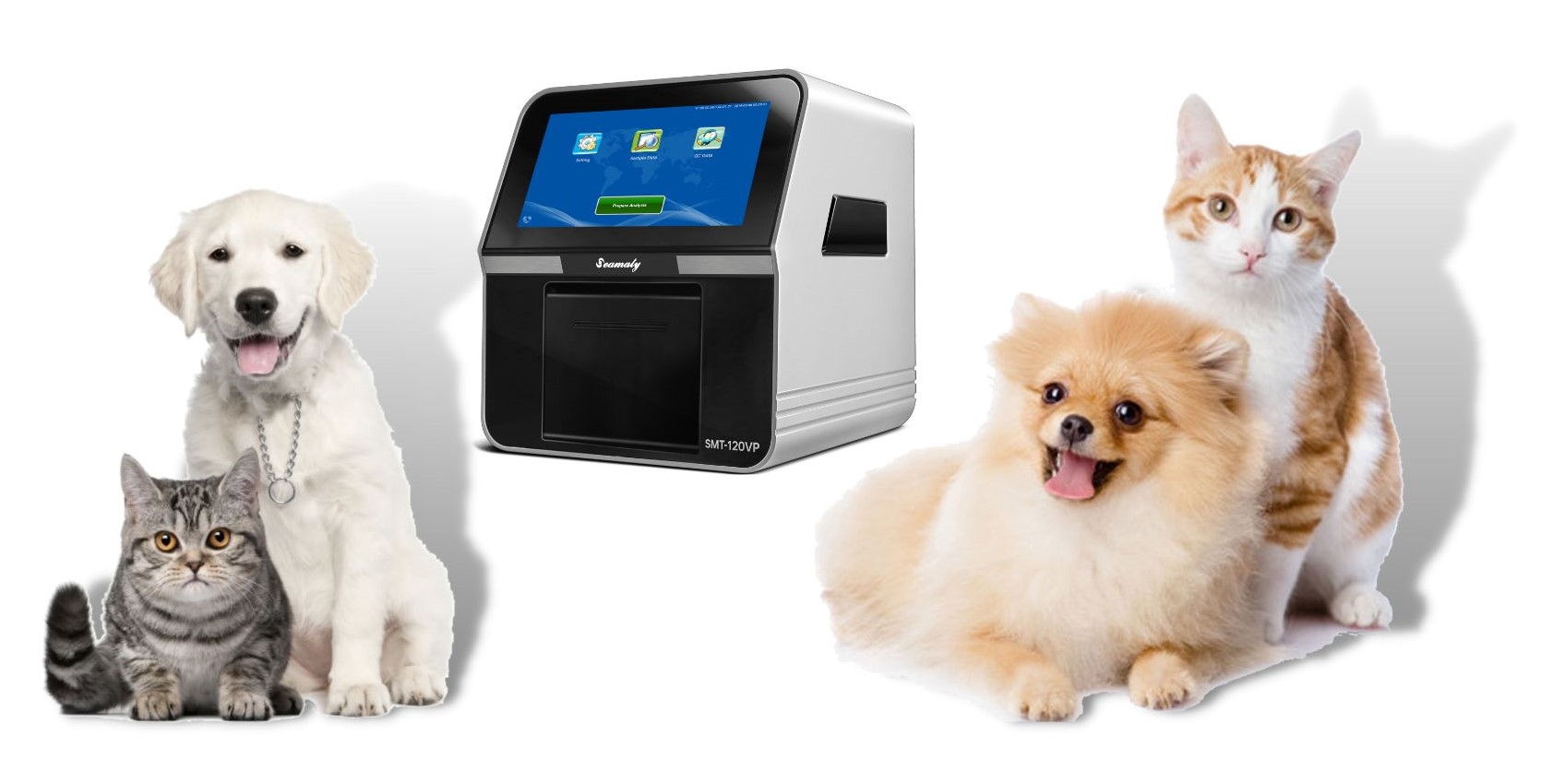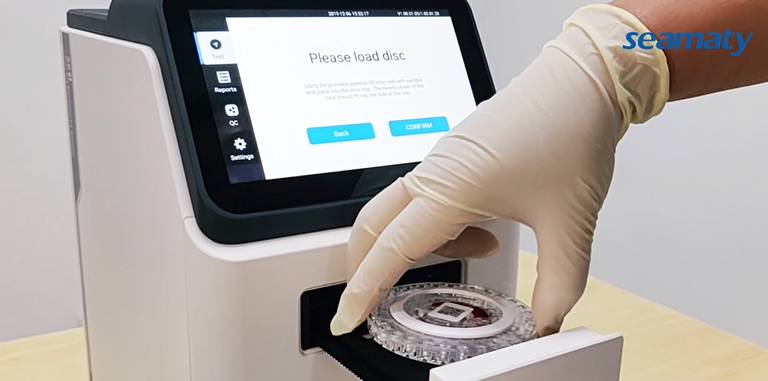release time:2023-04-10 14:22:54
As pet owners, we all want to ensure that our furry friends receive the best possible care. Regular check-ups with a veterinarian are an essential part of keeping pets healthy, but did you know that veterinary chemistry analyzers are revolutionizing the way veterinarians diagnose and treat illnesses in pets? In this article, we will explore the role of veterinary chemistry analyzers in veterinary diagnosis.
A veterinary chemistry analyzer is a machine that performs automated tests on blood, urine, and other body fluids to diagnose disease and monitor health. These machines are similar to the blood chemistry analyzers used in human medicine, but they are specifically designed for use with animals.
Veterinary chemistry analyzers can perform a wide range of tests, including liver and kidney function tests, electrolyte tests, blood glucose tests, and many others. These tests can be used to diagnose a variety of conditions, from diabetes and kidney disease to liver disease and cancer.
Veterinary chemistry analyzers work by using reagents to test the levels of various substances in a blood or urine sample. The machine takes a small amount of the sample and mixes it with specific chemicals, which cause a chemical reaction that produces a measurable result.
The machine then uses a spectrophotometer to measure the intensity of the reaction, which is used to determine the concentration of the substance being tested. The results are then displayed on a computer screen, and the veterinarian can use them to diagnose disease or monitor health.
Veterinary chemistry analyzers are an essential tool in veterinary diagnosis. These machines allow veterinarians to diagnose diseases and monitor health more accurately and quickly than ever before.
For example, a veterinary chemistry analyzer can detect liver and kidney disease, which are common conditions in pets. These conditions can be difficult to diagnose through a physical exam alone, but a blood chemistry analyzer can detect changes in the levels of specific substances in the blood that indicate these conditions.
Similarly, a veterinary chemistry analyzer can detect diabetes, which is also a common condition in pets. Diabetes can be difficult to diagnose through a physical exam alone, but a blood chemistry analyzer can detect changes in blood glucose levels that indicate the condition.
In addition to diagnosing disease, veterinary chemistry analyzers are also used to monitor health. For example, a veterinarian may use a veterinary chemistry analyzer to monitor the health of a pet undergoing chemotherapy or to monitor the health of a pet with a chronic condition such as kidney disease.
The use of veterinary chemistry analyzers has many benefits for pet owners and veterinarians. Some of these benefits include:
As mentioned earlier, veterinary chemistry analyzers are important tools that can provide quick and accurate diagnostic results for a variety of conditions in animals. One example of a state-of-the-art analyzer is the Seamaty vet chemistry analyzer, specifically the SMT-120VP model. This analyzer is designed for animal diagnosis and can test up to 24 parameters at one time with precision reference laboratory quality results.
One of the key advantages of the SMT-120VP is that no professional operation skills are required. This means that veterinary clinics and animal hospitals can use the analyzer with ease, without the need for specialized staff to conduct the tests. Additionally, the analyzer contains a built-in centrifuge, QR code, and Intelligent Quality Control, which help streamline the testing process and ensure accuracy.
Another important feature of the SMT-120VP is its full automatic operation. There is no need to add diluent or centrifuge samples manually, as the analyzer handles these tasks automatically. This can save time and reduce the risk of errors. The test results are also printed automatically after just 12 minutes, which can help veterinarians make timely and informed decisions about a pet's health.
Veterinary chemistry analyzers are revolutionizing the way veterinarians diagnose and treat illnesses in pets. These machines allow veterinarians to diagnose diseases and monitor health more accurately and quickly than ever before, which is essential for ensuring the health and well-being of pets.
If you have a pet, it's important to make sure they receive regular check-ups with a veterinarian who has access to these diagnostic tools. Regular blood tests and other diagnostic tests can help detect and prevent diseases before they become serious, which can ultimately save your pet's life.
In addition to regular check-ups, it's also important to provide your pet with a healthy diet, plenty of exercise, and lots of love and attention. With the help of veterinary chemistry analyzers, along with proper care and attention, you can help ensure that your pet lives a long, healthy, and happy life.
Overall, veterinary chemistry analyzers are a crucial component of veterinary diagnosis and are instrumental in helping veterinarians detect and treat a wide range of conditions in pets. By working with a veterinarian who has access to these advanced diagnostic tools, you can help ensure that your furry friend receives the best possible care and lives a long, healthy life.

References:
"Veterinary Blood Chemistry Analyzers Market Size, Share & Trends Analysis Report By Product (Benchtop, Portable), By Application (Liver, Kidney Disease, Diabetes), By End Use, And Segment Forecasts, 2021-2028." Grand View Research, 2021.
Lippi G, Guidi GC. Veterinary diagnostic laboratories and the role of laboratory medicine in animal health. Revue de Médecine Vétérinaire. 2007;158(3):135-41.
Stockham SL, Scott MA. Fundamentals of veterinary clinical pathology. John Wiley & Sons; 2013.
Rotbart HA. Challenges in the diagnosis of pediatric infectious diseases. The Journal of pediatrics. 2013;163(1):S4-9.

2023-06-07
Uncover the vital role of biochemical examinations in veterinary diagnosis. Explore three key facts and discover the state-of-the-art Seamaty SMT-120VP vet biochemical analyzer for precise and efficient testing.

2022-01-28
Any test has its advantages and disadvantages, the key is to apply it in the right scenario. The operational process, especially the sampling process, needs to meet specifications.

2021-12-24
The normal human blood contains more or less some fats and oils. However, when the level of fats and oils exceeds the normal range, you may suffer from a disease called hypertriglyceridemia, which is one of the hyperlipidemic diseases.